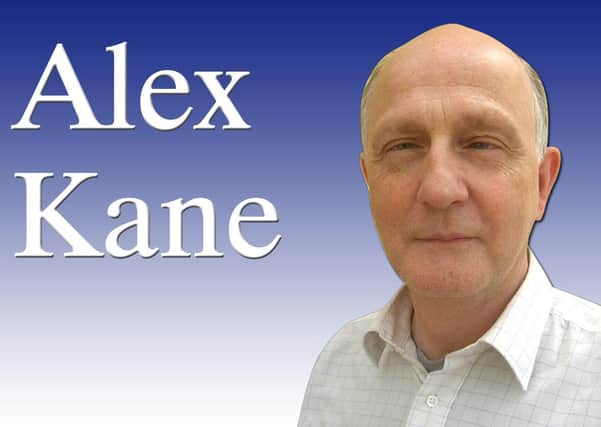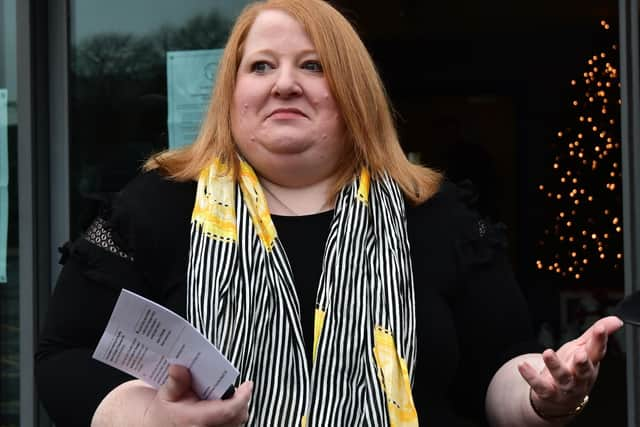Alex Kane: Unionists must be wary of making Alliance – and its voters – an enemy


In March 2017, just after the Assembly election, I wrote this of Alliance: ‘This was a party that had tasted electoral blood, a party which believed that, finally, it was on the cusp of the breakthrough that has eluded it for decades ... At this point, though, nobody knows if this is just a one-off good election for the party, a personal boost for Naomi in her first election, or the beginning of that elusive breakthrough ... Most important of all, she needs to shift Alliance from that space between unionism and republicanism and develop entirely new ground of her own; in other words, Alliance has to become something bigger than merely the middle-of-the-road option for ‘soft’ votes.’
Well, there is one thing we do know, now: it wasn’t just a one-off good election. Alliance has had a string of electoral successes and there’s no reason to suppose that the success won’t continue. Yet the more Alliance grows, the more a section of unionism gets cross with it. And the more that section of unionism tried to demonise it (which we saw in election campaigns between 2017 and last December) the more Alliance grew.
Advertisement
Hide AdAdvertisement
Hide AdWorryingly for unionism, particularly the UUP, the evidence suggests that a significant contributor to Alliance’s growth has been unionist voters (many former UUP supporters) and younger voters from pro-Union backgrounds who have decided they are comfortable with Alliance.


Richard Bullick, a former chief advisor to both Peter Robinson and Arlene Foster, tweeted on Saturday evening: ‘Potentially unpopular view for my followers. I didn’t vote for Stephen Farry. I actively campaigned against him. Despite the fact he has said some pretty silly things he is not an enemy of unionism. It’s people like him that will determine our future. Let’s remember that.’ That’s a bang-on-the-money assessment. Alliance’s neutrality, agnosticism, ambiguity, pragmatism (call it what you will) on the constitutional question is something I have difficulty with; but I wouldn’t be so stupid as to dismiss its 134,115 voters – that’s what it polled in December 2019; more that both the UUP (93,123) and SDLP (118,737) – as republican, pro-united Ireland supporters.
It’s also interesting to note a faction of republicanism, particularly those on social media, has also taken to describing Alliance as pro-Union. A Sinn Fein member emailed me a few days ago: ‘The reason former UUP supporters and others from the wider pro-Union community have been able to switch to Alliance is because the party remains, at its heart, a small-u pro-Union party. Do you really think that anti-Brexit unionists would have shifted to the SDLP if Alliance didn’t exist? Of course they wouldn’t.’
Here’s the problem for unionism: the more Alliance voters and supporters and public representatives are considered ‘fair game’ by elements of unionism and loyalism, the more those voters will believe themselves unwanted and rejected by unionism. If, at some point, a border poll is called (and, again, I wouldn’t be so stupid as to dismiss the possibility) the pro-Union lobby might find it extraordinarily difficult to nudge a significant section of Alliance voters into their camp. As Bullick said of Farry, it could be Alliance voters who determine our future.
Advertisement
Hide AdAdvertisement
Hide AdLet’s look at Belfast for a moment. The UUP has two councillors and Alliance has 10. The UUP has one MLA and Alliance has five. Neither has an MP, but Alliance won 32,547 votes to the UUP’s 3,775. I’m aware that the UUP didn’t stand in North or West, but previous figures suggest Alliance would still have retained a huge lead. The conclusion? Either the UUP has been undermined by a non-unionist party, or an awful lot of unionist/pro-Union voters (and they’re not exactly the same thing, by the way) don’t regard Alliance as a threat to either their citizenship or identity (which aren’t exactly the same thing, either).
If it’s the former, unionism has a huge problem. If it’s the latter, unionism still has a problem, but one it may be able to address and temper. The UUP has an additional problem; while some of its support base has shifted to Alliance another section has moved to the DUP – to try and ensure unionism actually holds or wins seats. In a News Letter column on March 27, 2017, I raised the question of whether the UUP could survive as a standalone party and reverse 20 years of electoral/seat decline. I didn’t think so and closed with the line, ‘Nevertheless, it now looks as though the (unionist) unity project will soon be in full swing’.
I still have huge reservations about the project, but I can’t see how it is avoided. The UUP has taken even bigger blows since the disastrous Assembly election in 2017 (not least the new leader coming 4,690 votes behind Alliance in East Antrim in the last general election) and, for the life of me, I cannot see a route from the present, ongoing decline. There are a few bankable seats remaining at council and Assembly level, but nowhere near enough to sustain a party which is fighting for survival on two major fronts. To be honest, I don’t relish the prospect, but it looks to me as though unionism is heading towards a merger-in-everything-but-name.
Anyway, back to Alliance and how unionism responds to its electoral growth and position on the constitutional question. I think it was Norman Tebbit who argued that Margaret Thatcher’s success, particularly during her first decade, was down to persuading a section of the Labour vote that it was ‘supporting the wrong party for the wrong reasons’. Maybe that’s what Naomi Long has done with a section of the unionist vote – persuading them they were backing policies which weren’t actually in their interests. Can unionist parties, singly or collectively, reverse that direction of electoral travel? I don’t know. But I do know that unionism must be careful about antagonising former voters whose support could be crucial for the survival of the Union – and much sooner than most of us think.